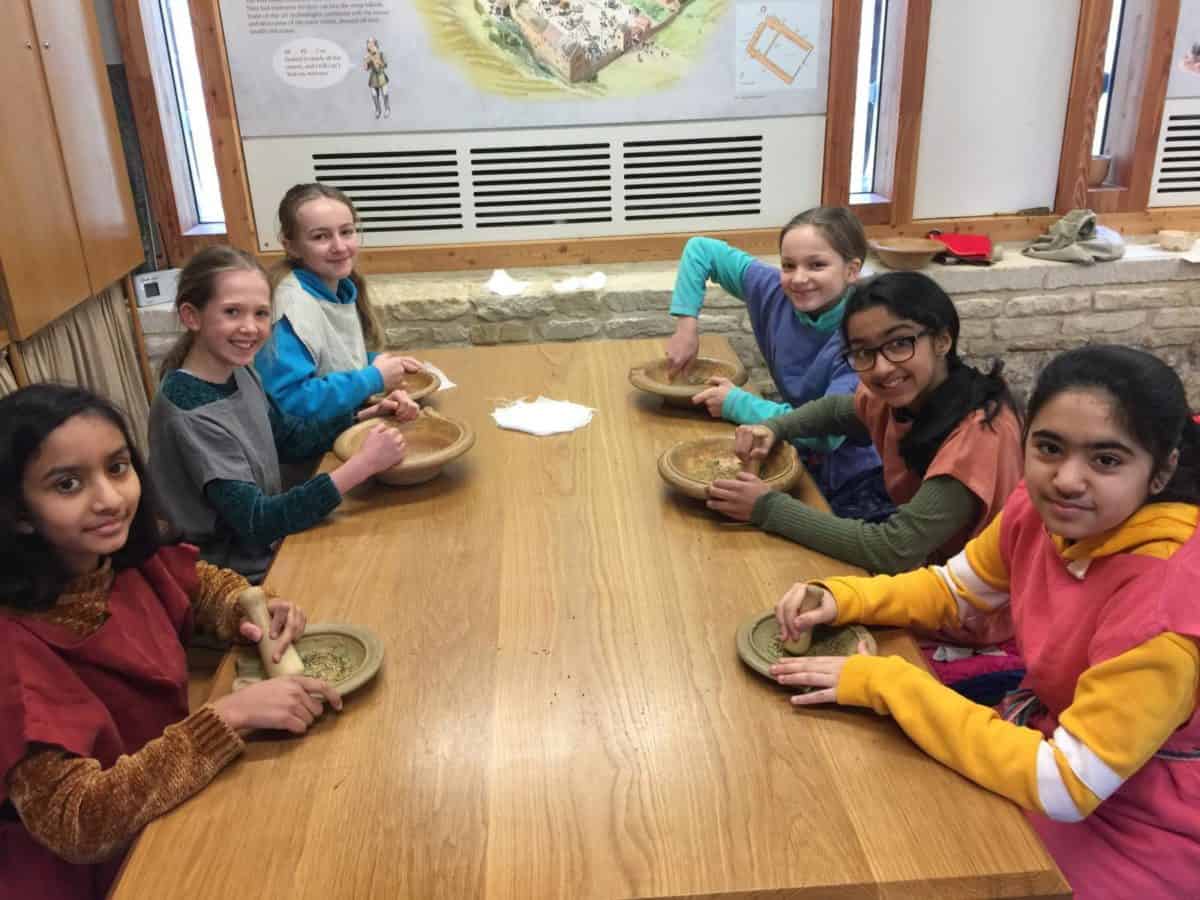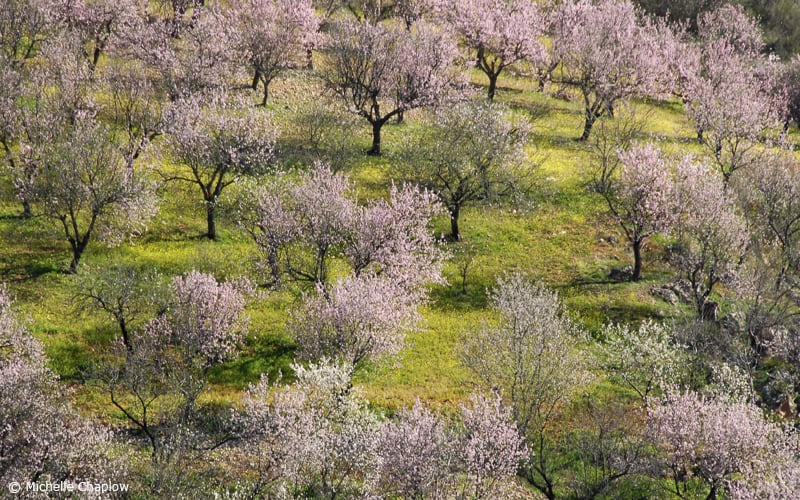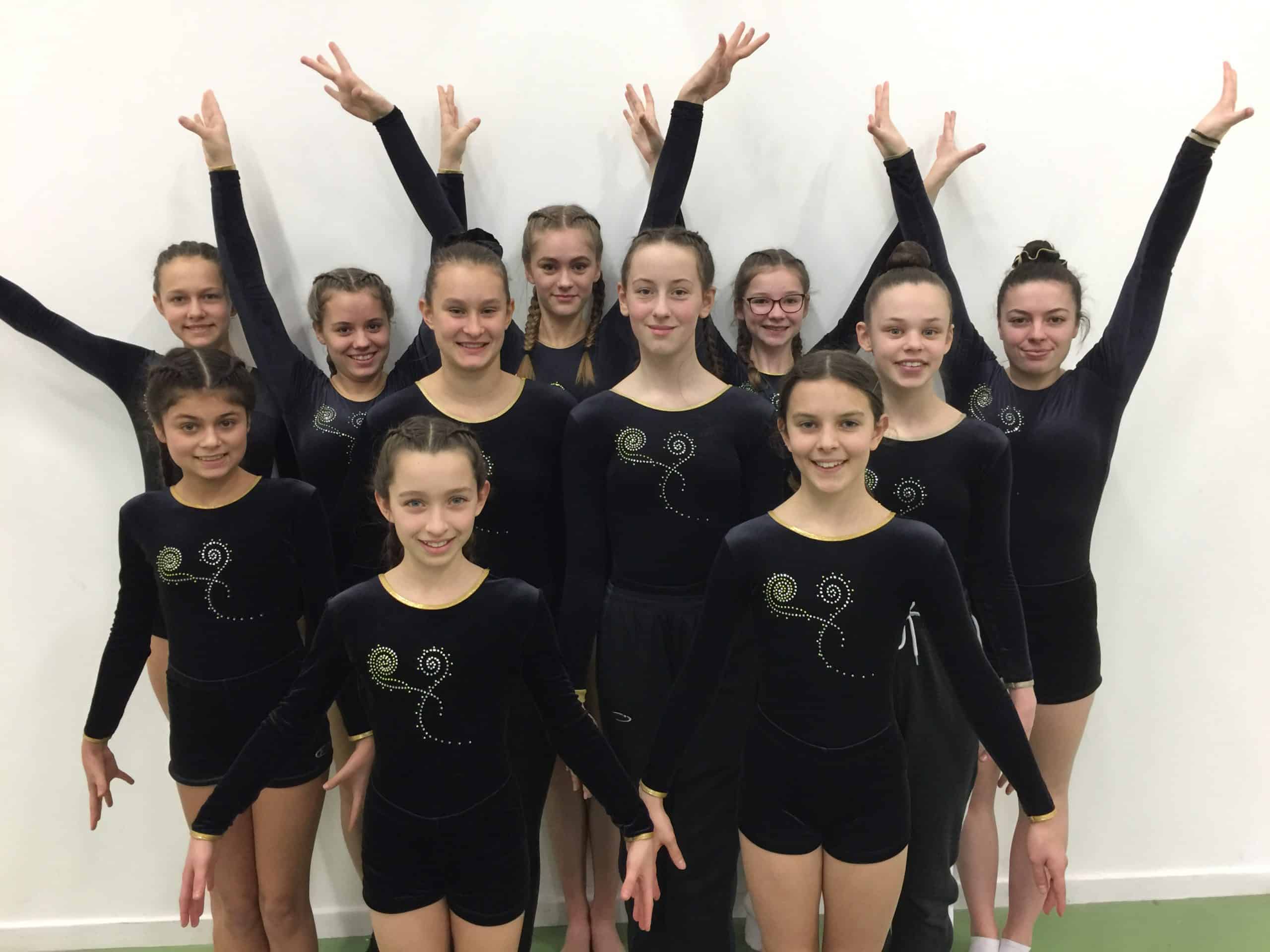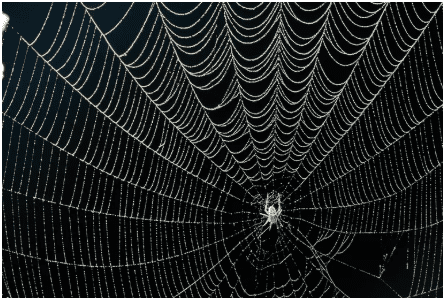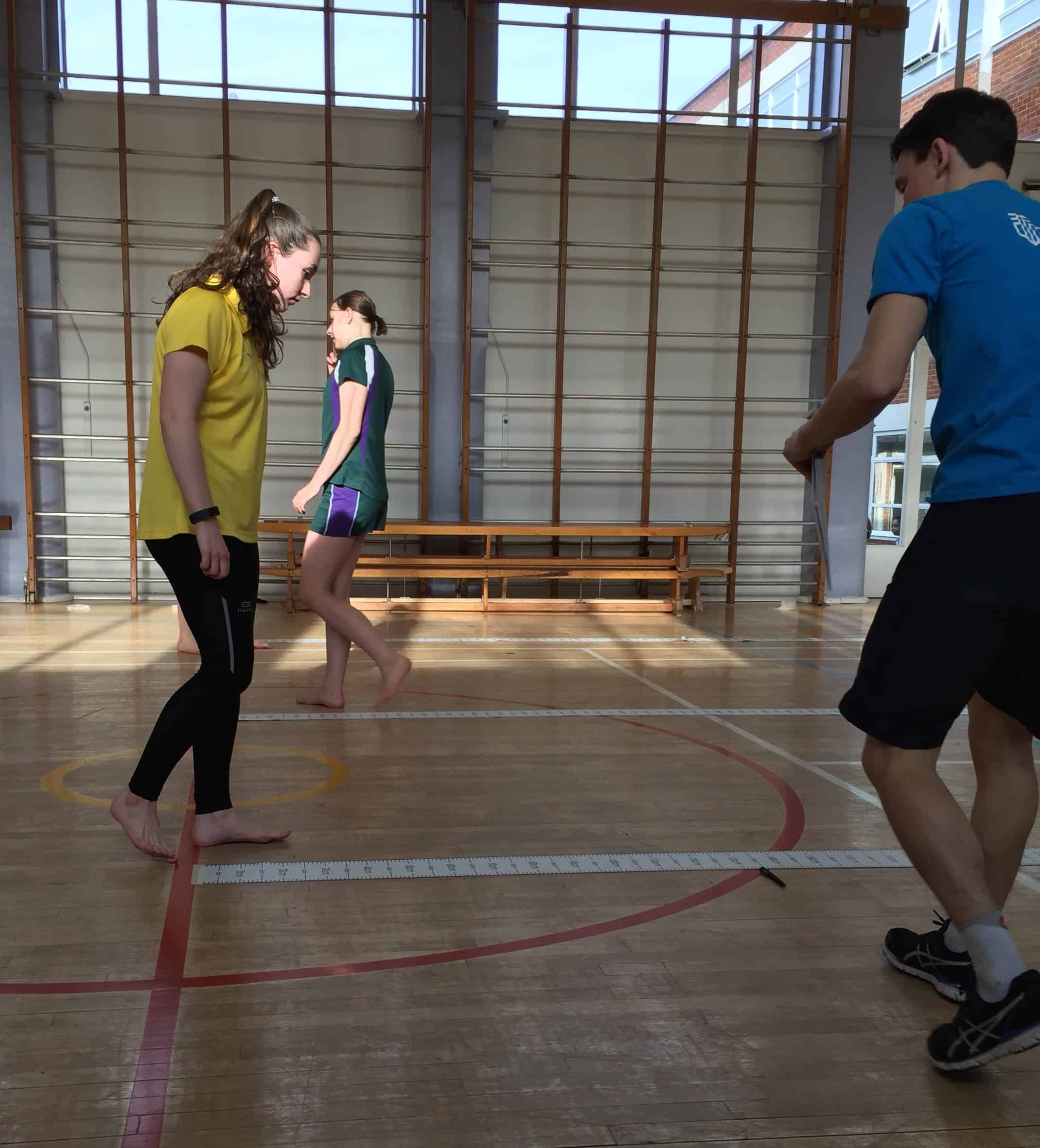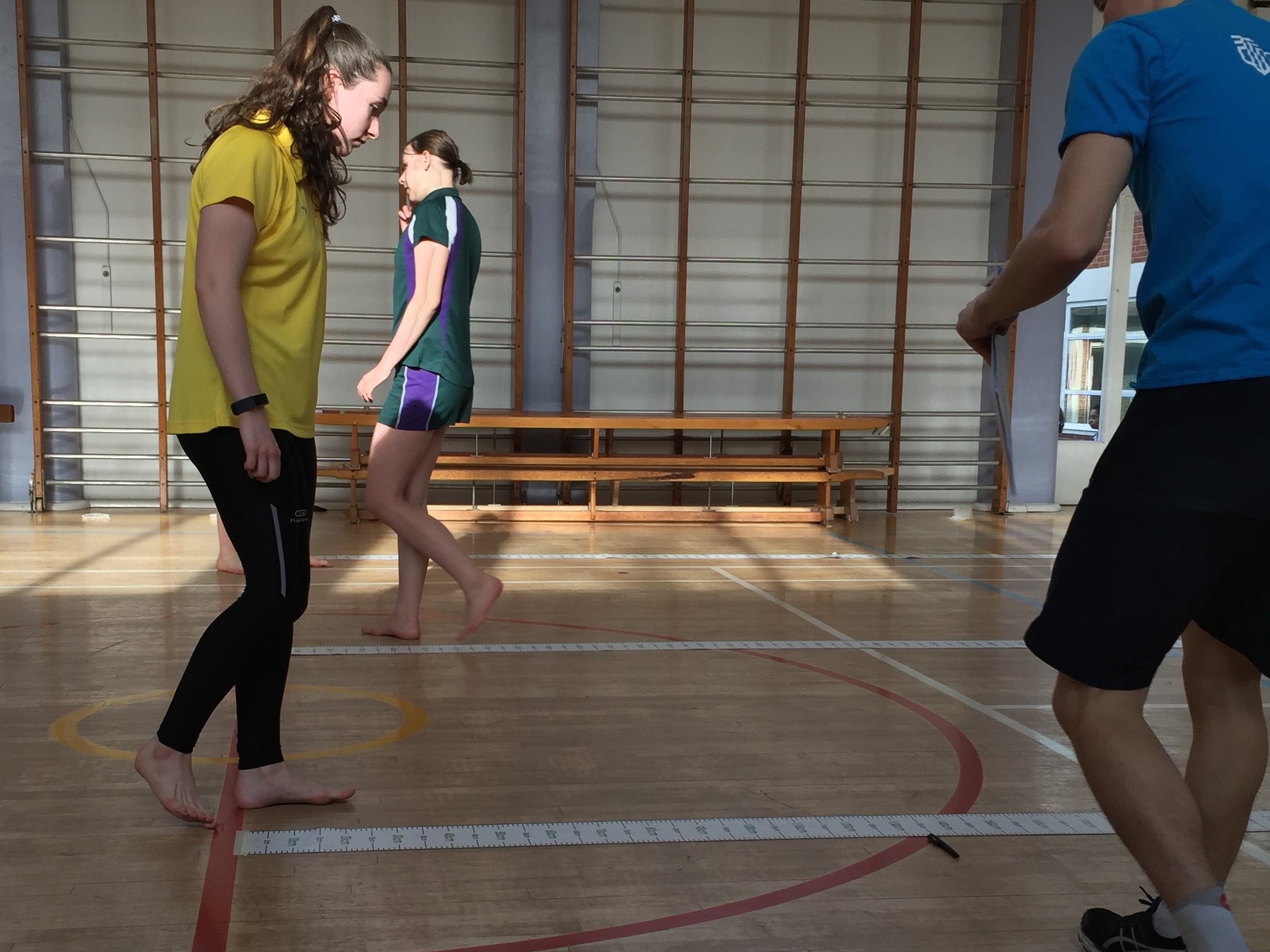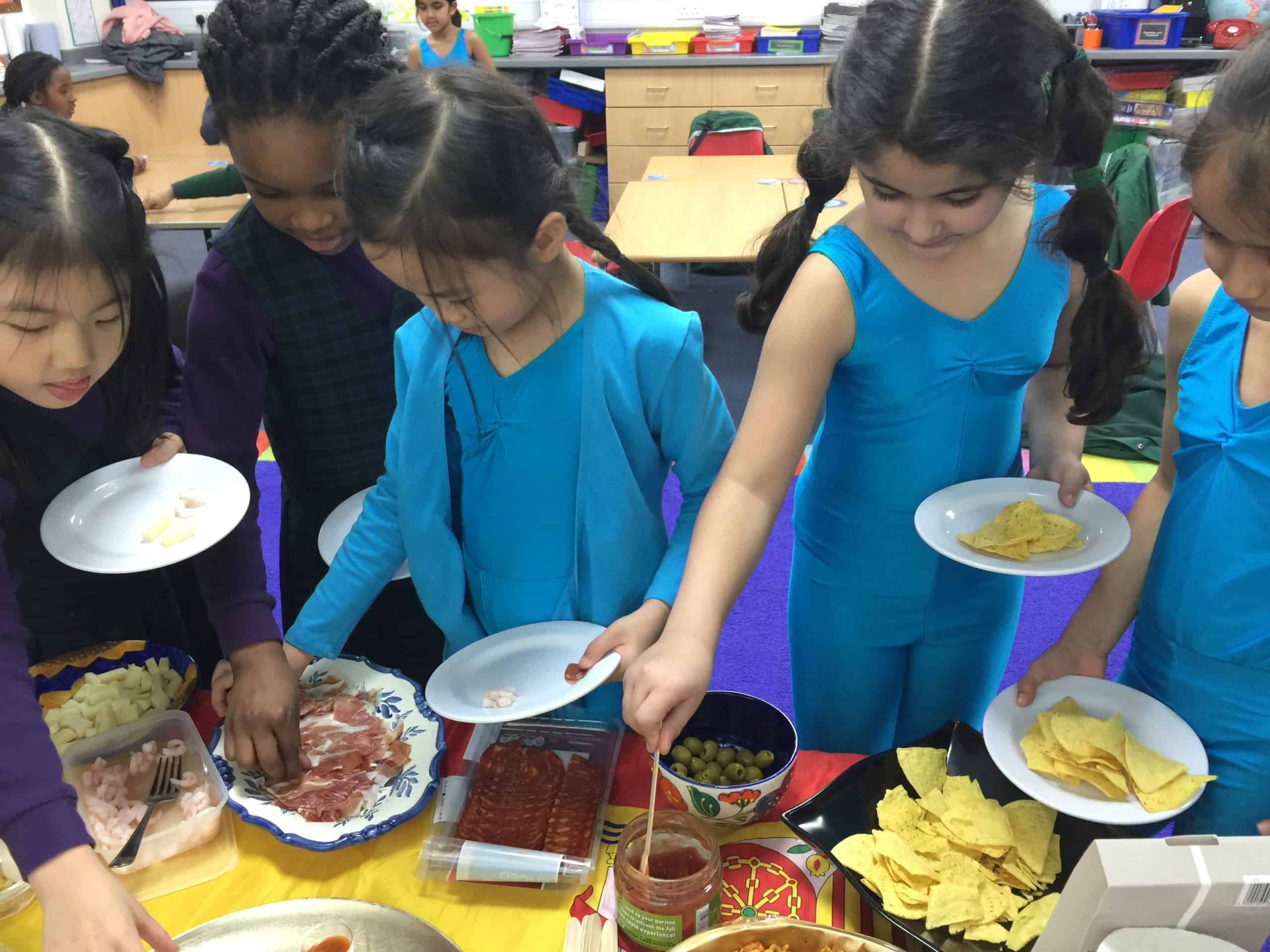Living like a Roman
NEWS
Living like a Roman
9 March 2020
Sophie and Esha (Upper III) said: When we went to Chedworth Roman Villa, it was very fun and educational too! The National Trust volunteers were very friendly and knowledgeable. They told us lots about how the Romans lived and how clever they were. We rotated around three different activities: Living History (where we were allowed to dress up and make our own hygienic, aromatic, Roman medicine bags), a guided tour around the remains of the Villa (where we learnt a lot of things about how the Romans lived and which tools they used to do different things) and we handled Roman artifacts (we learnt a lot about their clever inventions and the materials they used). Overall the trip was incredibly enjoyable and we would love to go again!
SHARE ON
Pause 4 Thought - 6 March 2020
PAUSE 4 THOUGHT
Pause 4 Thought
6 March 2020
‘To see a World in a Grain of Sand
And a Heaven in a Wild Flower,
Hold Infinity in the palm of your hand
And Eternity in an hour.’ – William Blake
We moved on this week to consider the value of ‘Wonder’ – of wonder, awe, appreciation of beauty and excellence. How much do we notice and appreciate beauty, excellence and/or skilled performance in all domains of life, from nature to art to mathematics to science to everyday experience – including moral goodness?
We started our exploration by thinking about things which make us go ‘WOW!’ Things which make us catch our breath. We were privileged to be able to watch Manya from LIII dance for us in assembly on Tuesday, the beauty and message behind her skilled interpretation being enhanced by Sofia’s singing and carefully put together visual images (and enabled by her back-stage helpers Fenella and Pippa). This performance exemplified how often things that make us go ‘wow’, are unexpected, beautiful, surprising, courageous and maybe leave us in admiration of someone. Flash mobs exemplify this – take a look.
Moments of wonder are often very personal. Mine include holding my own children after they were born – indeed, being a parent continues to be (mostly!) full of wonder. I also often notice and am wowed by dramatic or interesting light in the natural world. How glorious is this….

……soon to be available in a wood near you!
Have a wonder-ful weekend.
Mrs D-C
SHARE ON
Careers and Higher Education Convention 2020
NEWS
Careers and Higher Education Convention 2020
By Mrs Robinson, 28 February 2020
The flagship event in our Aspire careers programme, The 2020 Careers and Higher Education Convention, took place on Thursday 27 February and it was an outstanding success, with over 500 students and parents attending.
It was specially designed for all students from Year 9 (Upper IV) and above, whether they knew exactly what their career path would be or were just starting to consider what subjects they wished to pursue at GCSE. Bringing together representatives from a wide range of professions and higher education institutions, it offered students the opportunity to gain first-hand information on different careers and higher education study options.
Representative organisations spanning finance and blue chip, medicine and veterinary, sustainable business and the third sector were available to advise the students on the best routes to take to succeed in their chosen area, and the realities of life in that particular field. We were also fortunate to be joined by a large number of universities who were able to offer guidance on the best courses for students to pursue.
The six Aspire talks were truly inspirational to all those who listened. Talks ranged from A Future in… Scientific Research, Law, Engineering and Medicine to A Career in… the Charity Sector and Professional Services.
It was such a pleasure to see The Abbey Community working together with Alumna giving advice to our current students. Deciding on a career is not something that can be achieved in a single evening, but we very much hope that the 2020 Careers and Higher Education Convention acted as a springboard to inspire many girls to start researching the shape of their futures.
SHARE ON
Pause 4 Thought - 28 February 2020
PAUSE 4 THOUGHT
Pause 4 Thought
28 February 2020
‘I’d rather get bad news from an honest man than lies from a flatterer.’ – Ursula K LeGuin
I spent half-term in the Alpujarras in the foothills of the Sierra Nevada in Spain. We were lucky to be able to walk in spring sunshine through glorious (if rather steeply uphill and downhill!) countryside and to enjoy some wonderful local cuisine. An unexpected pleasure were the almond trees which grow prolifically in the area and which were robed in the most delicately beautiful blossom during our visit. In the evening, many of the dishes that we ate made delicious use of the nuts (actually fruits – see below) gathered from the trees last autumn.
Talking with the hosts of our small guesthouse we learned of the importance of the almond trees. They offer important nutritional benefits – research shows these healthy nuts may both raise healthy cholesterol and lower unhealthy cholesterol at the same time. They provide a rich source of energy, vitamins and oil and last through the lean winter months. We also discovered that the almond tree is rich in symbolism: in Christian faiths it represents purity; in the Jewish religion it is recognised as the ‘tree of life’, whilst a number of middle eastern cultures see the tree as a symbol for light. Certainly in many areas across the globe the tree (which blossoms in January/February) is seen to embody new beginnings.
A rather loose link perhaps to our value of Honesty – but I feel that the purity, fresh start, beauty and wholesomeness embodied by these trees exemplify a nourishing and honest approach to life.
2. University of Haifa researchers discovered that almond flower nectar contains a unique poison that does not harm bees, and which bees find irresistible. The scientists speculate that this toxic substance therefore gives the almond tree a reproductive advantage.
3. Almonds provide calcium, protein, vitamin E, magnesium, phosphorus, potassium, zinc, copper, manganese, B vitamins, natural fiber, antioxidants and cholesterol-lowering monounsaturated fat. Studies show they protect against diabetes, gallstones and cardiovascular disease.
4. The word “almond” derives from the Greek word “amygdala,” which is why the almond-shaped structures in the brain are called amygdalae
5. The Romans showered newlyweds with almonds as a fertility charm.
6. The Chinese consider the almond a symbol of enduring sadness and female beauty.
Have a good weekend.
Mrs D-C
SHARE ON
Gymnastic teams at Southern Regional Finals
NEWS
Gymnastic teams at Southern Regional Finals
24 February 2020
On Sunday 9 February, The Abbey sent Junior and Senior Gymnastic teams to the Southern Region Finals of the British Schools Floor and Vault Championships.
Hosted by St Mary’s School in Gerrards Cross on behalf of the British Schools Gymnastics Association. The competition gave The Abbey gymnasts a great opportunity to challenge themselves against tough opposition.
The Junior team of Phoebe, Isabella, Emma, Amy, Saffron and Lily did really well in their first major competition to come sixth out of 12 schools in what was a very closely fought competition. All junior gymnasts gave accomplished performances, with Phoebe our highest scoring gymnasts.
Erin, Leah, Lottie, Sophie and Tiggy made up the Senior team, and exceeded all expectations for the day with their stellar performances. The girls worked exceptionally hard and were placed fourth, narrowly missing out on winning the bronze medal by only 0.3 of a mark. The highest scoring senior gymnast for The Abbey was Lottie.
Congratulations to all The Abbey gymnasts on their excellent performances.
SHARE ON
Pause 4 Thought - 13 February 2020
NEWS
Pause 4 Thought
13 February 2020
‘As I have said, the first thing is to be honest with yourself. You can never have an impact on society if you have not changed yourself. Great peacemakers are all people of integrity, of honesty, but humility.’ – Nelson Mandela
This week we considered how easy it is to get caught up in a web of lies. What starts as a slight omission or exaggeration, can trip us up and before we know it we find ourselves fabricating stories and explanations to get us out of the trap we find ourselves caught in.
Using a bowl of ice-cream, some salt and squeezy strawberry sauce, we explored how a lie (the salt) can be covered up (the strawberry sauce) – but you still know the salt is there, and can taste it. The only way to put it right is to clean the whole bowl out and start again. It can be hard to be honest, but messier still to deal with clearing up after the lie.
We revisited the story of Joseph (of technicolour dreamcoat fame) and his brothers: their deceit caused enormous pain to their father, and ‘clearing up’ that lie took many years.
I hope that you have a good half-term break with suitable amounts of relaxation and rejuvenation..
Mrs D-C
SHARE ON
ARTiculation success
NEWS
ARTiculation success
13 February 2020
Following internal heats, Lower VI student, Freya represented The Abbey at the regional heats of the ARTiculation public speaking competition held at the New Art Centre at Roche Court this week.
Participants select a work of art and prepare and deliver a presentation on the work to an audience. Consideration is given to the content, structure and delivery of the presentations.
Freya gave an insightful and considered presentation inspired by two recent school trips. Her chosen work of art was the portrait of Harold Pinter by Justin Mortimer she saw on a visit to the National Portrait Gallery with the art scholars last term. Freya had seen two of Pinter’s short plays in London the previous year, and his writing, as well as the striking composition of the portrait, informed her speech.
The adjudicator, Susanna Denniston, Chair of Trustees, Salisbury Museum congratulated all speakers for the enormous amount of work that they put into their presentations which clearly came cross. She selected Freya to go on to attend the Southern Regional Final to be held at the Ashmolean in March. Susanna praised Freya for her strong beginning to the presentation and how her interest in Pinter’s portrait was piqued by his writings. Susanna stated how Freya’s visceral reaction to the portrait was brilliantly conveyed, and for her fluent and well-paced delivery.
Congratulations to Freya on this achievement and we all wish her good luck at Regional Final.
The Abbey has been participating in ARTiculation since 2015, when the school’s entrant, Eleanor Stephens won the national event. It has proved to be a much anticipated and enjoyed event in our school calendar and the audiences of pupils and staff always gain huge insight and knowledge into a variety of artworks. The participants develop valuable research and presentation skills and the experience is a truly enriching one for all involved.
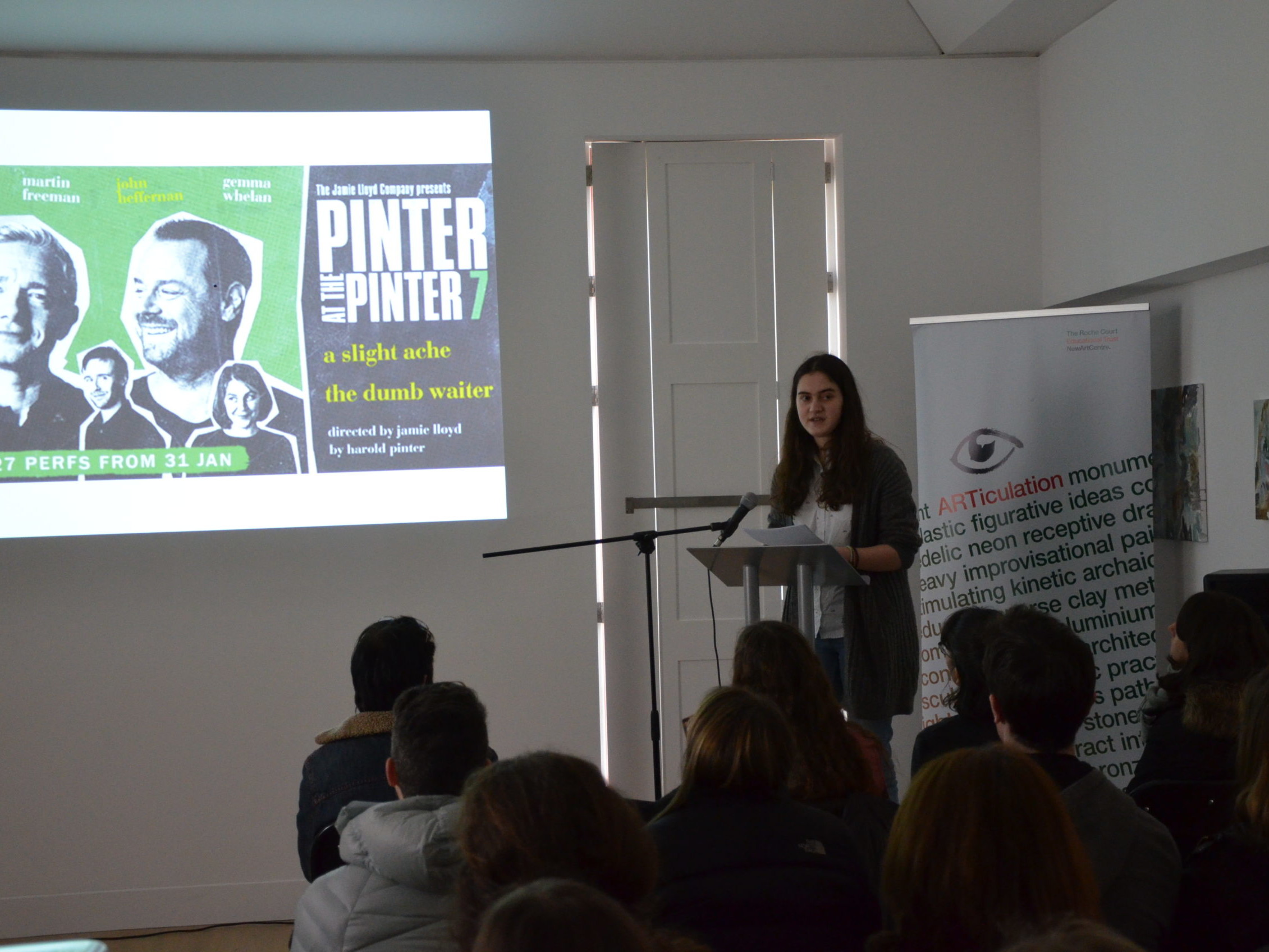
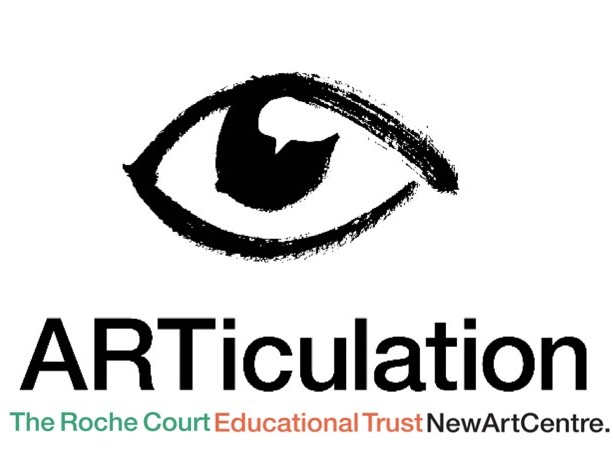
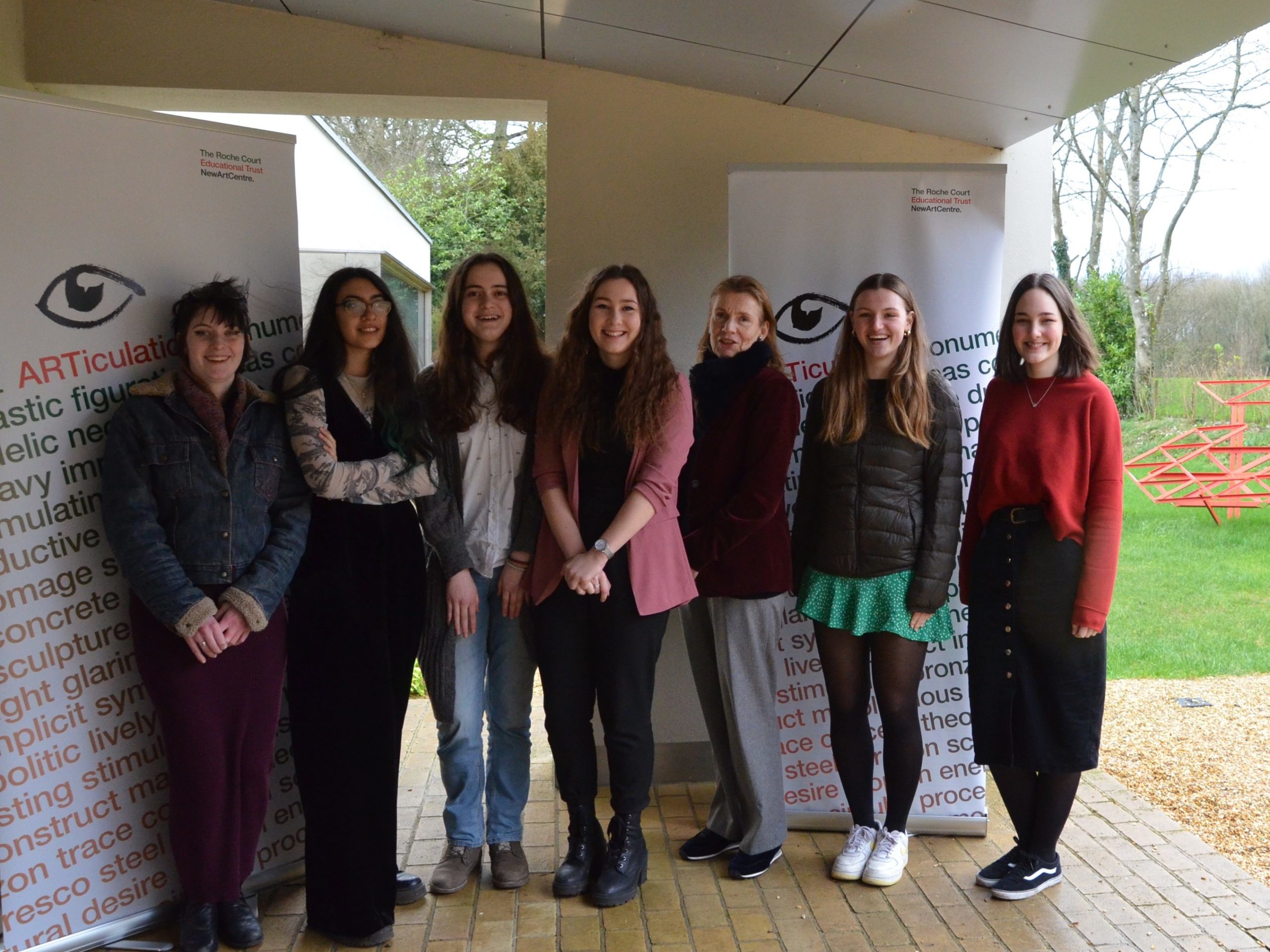
SHARE ON
Reducing sporting injuries and improving performance
NEWS
Reducing sporting injuries and improving performance
12 February 2020
Last week, The Abbey PE Department welcomed sports physiotherapists from the Tyhtan 3-T Programme to the Senior School. This 3-step programme, Teach, Test, Train, is designed to improve children’s performance and help protect them against preventable sporting injuries.
The day was the third part of the ‘test’ element, with The Abbey Sports Scholars and elite level student athletes having already undertaken test days in June and September. Each student was tested individually, with performance monitored against their personal set of goals, received from their previous test sessions. Using the feedback, the students will continue to train safely and effectively to help them to reach their potential and avoid injury.
Currently being done as a trial, The PE department will assess the impact of the 3-T Programme with the hope of being able to offer it to the whole school community in future.
Being able to trial, and potentially roll out, this innovative programme with a broad educational impact is possible thanks to funds being awarded from The Abbey Annual Fund. The Annual Fund was introduced to celebrate The Abbey’s 130th Anniversary, and allows new, school-wide projects to enhance academic, extra-curricular and pastoral activities and opportunities for students at The Abbey.
SHARE ON
Upper Prep try tapas tasting
NEWS
Upper Prep try tapas tasting
By Señora Booker, 10 February 2020
This term in Spanish lessons Upper Prep have been learning about traditional dishes such as paella and Spanish ham. Señora Booker brought in a variety of food which girls tasted, including aceitunas (olives), tortilla (Spanish omelette) and chorizo. Everyone was encouraged to try something new and some girls had thirds and even fourths! The most popular foods were gazpacho (cold tomato soup), Manchego cheese and Doritos with salsa.
Following on from food-tasting, Upper Prer reflected on the dishes and chose a favourite food to write a poem about. Some girls managed to write an acrostic poem. They thought about the taste, colour, texture and how to eat it, amongst other things. There will soon be a Spanish food display board put up showcasing many of the girls’ work.
Buen trabajo, Upper Prep!
SHARE ON
Pause 4 Thought - 7 February 2020
NEWS
Pause 4 Thought
7 February 2020
“Honesty is the fastest way to prevent a mistake from turning into a failure.” James Altucher.
This week we moved on to consider Honesty. In assembly we started with four UIIC girls playing the ‘Chocolate Button Game. Each was given a single (giant!) chocolate button to put on their tongues and close their mouths. They then needed to keep the chocolate buttons there, without moving their tongues or chewing, until they had completely melted. The winner of the game was the person whose chocolate button took the longest time to melt. As I was unwilling to look inside their chocolate-filled mouths, they needed to be honest and raise their hands when the chocolate button had completely melted. Without honesty, there would be no game. Suffice it to say, having out themselves forward as honest chocolate-lovers, the game went well and there was a clear winner.
I then shared the stories of two children – one who gained a reputation for honesty, and one (fictional) child who did not.
The true story concerned a seven-year-old boy named Tanner Munsey. Tanner’s reputation for being honest earned him a mention in the “Scorecard” column in the July 10, 1989, issue of Sports Illustrated magazine.During a T-ball (intro to baseball – like rounders) game in Wellington, Florida, Tanner attempted to tag a player leaving first base. When the umpire called the player out, Tanner immediately informed the umpire that he hadn’t managed to tag the runner. Two weeks later, Tanner encountered the same umpire in another T-ball game. This time, Tanner was playing short-stop and tagged a runner as they approached third base. When the umpire called the player safe, Tanner didn’t say a word, but the umpire noticed his surprise at the call. “Did you tag the runner?” she asked Tanner. When Tanner affirmed that he had, the umpire changed her decision and called the player out. When the coaches and other parents protested, the umpire stood by her decision, informing them that she had learned to trust Tanner, because of his honesty.
I then showed them the Victorian cautionary tale of Matilda – who came to a sticky end due to her propensity to telling lies, and therefore eventually not being believed. A similar format to ‘The Boy Who Cried Wolf’.
Finally, we considered why we (because adults are not always honest either….) might avoid the truth sometimes. Perhaps in order to avoid trouble or to avoid hurting someone’s feelings; maybe in order to make ourselves seem more interesting/important; perhaps we are scared of facing consequences. We have lots of opportunities to choose either to be like Matilda (& run risk that people will not trust us) or like Tanner (and be trusted). We are known by our actions. People respect those whom they can trust, those who are honest, and feel safe with them
It often takes courage to be honest. But that doesn’t mean we always have to say everything….
Have a good weekend.
Mrs D-C
SHARE ON


